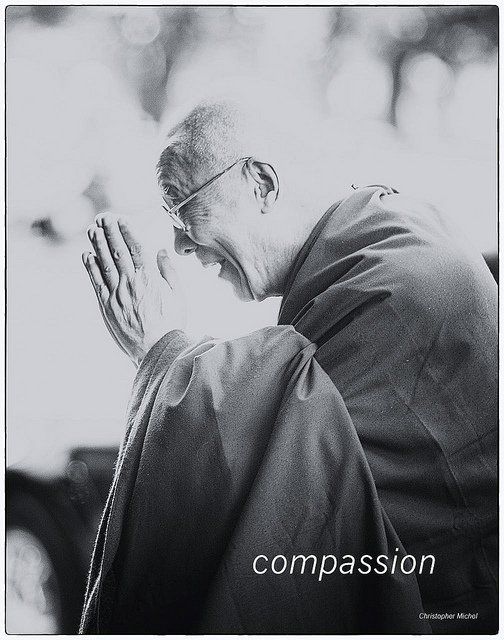Cultivating Compassion
"...the idea of the beloved community is breathtaking."
Cultivating Compassion
By Kelly Anderson
Compassion
(noun): Sympathetic consciousness of
others’ distress together with a desire to alleviate it.
Merriam-Webster
I recently happened upon an interview with the late Vincent Harding. His words have stayed with me. Dr. Harding worked with Martin Luther King, Jr. in the civil rights movement of the 1960s, although he says that description isn’t adequate for King’s vision. What King “...was seeking for was not simply equality or rights, but what he was seeking for was the creation of the beloved community …” He went on to explain that Dr. King saw the best possibilities in our nation - possibilities that other civil rights activists didn’t see - because he was “looking with an eye filled with love and compassion.” An eye of love and compassion opens us up to see many things that might otherwise be missed.
After doing a bit of reading, I learned that these weren’t just casual words from Dr. Harding, but truly the basis of Dr. King’s work. The description from the King Center says that, in the Beloved Community, “love and trust will triumph over fear and hatred… and it is this love which will bring about miracles in the hearts of men.”
To me, the idea of community - shared interests bringing people together in place or in spirit - is beautiful. And the idea of the beloved community is breathtaking.
Of course, King is most known for advocating nonviolence, which he saw as the way to the beloved community, but the thing that really intrigues me is the idea of “looking with an eye filled with love and compassion.” I’m drawn to the thought that seeing the world with an eye filled with compassion opens us up to greater possibilities. That it was through an eye filled with compassion that King could envision the beloved community.
According to Dacher Keltner and the Greater Good Science Center , “Compassion literally means ‘to suffer together.’” Compassion is deeply rooted in human nature, with a biological basis in the brain and the body. Feelings of compassion bring about physiological changes, the heart rate goes down, we feel pleasure, and are motivated to be even more compassionate. And, compassion may even overwhelm self-interest. However, while there is an evolutionary basis to compassion in almost all living creatures, it must be nurtured if it is to flourish.
Fortunately, we can cultivate compassion. Children who grow up in environments that value and model compassion and altruism tend to act more compassionately. And as adults, we can work to strengthen compassion within ourselves. You don’t have to look far to find the inspiration, it’s prevalent in spiritual traditions, science, and art. As I have begun exploring ways to cultivate greater compassion, the following are some examples which have caught my eye.
Spiritual Traditions
Confucius taught the practice of the Golden Rule:
“What you do not wish for yourself, do not do to others.”
And according to the Dalai Lama , compassion and love are core essences found in all major religious traditions.
Science
Darwin wrote, “Sympathy will have been increased through natural selection, for those communities which include the greatest number of the most sympathetic members, would flourish best, and rear the greatest number of offspring.” Even the physicist, Einstein , valued compassion and is quoted saying, “Our task must be to free ourselves...by widening our circles of compassion to embrace all living creatures and the whole of nature in its beauty.” So, it seems to me that if we wish to survive, compassion just may be the key.
Art
Compassion is a theme in literature and film, and one of my favorite poems by Emily Dickinson has compassion in its heart:
If I can stop one heart from breaking,
I shall not live in vain;
If I can ease one life the aching,
Or cool one pain,
Or help one fainting robin
Unto his nest again,
I shall not live in vain.
Is America Possible?, an On Being conversation with Vincent Harding and Krista Tippett
The Greater Good Science Center
The Compassionate Instinct by Dacher Keltner
Portrait of Compassion by Christopher Michel (image licensed CC-BY)
Confucius in the Stanford Encyclopedia of Philosophy
The Power of Compassion by the Dalai Lama
Darwin Revisited: Compassion Key to Our Survival by Eric Nelson, Charter for Compassion
Einstein on Widening Our Circles of Compassion by Maria Popova, Brain Pickings (11/28/16)











